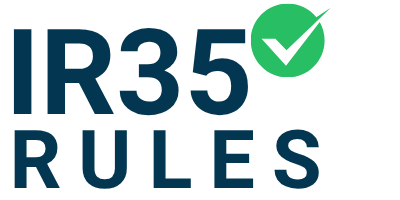Business Skills To Advance Contracting Career
The world of contracting is competitive. Whether you're an IT consultant, engineer, creative professional, or interim project lead, technical ability alone isn't enough to stand out. You might have the qualifications and experience, but so do plenty of others. What really sets successful contractors apart — especially those aiming for higher-paying roles or leadership opportunities — is a strong foundation of essential business skills.
At IR35 Rules, we understand that your success isn't just about staying compliant with HMRC regulations. It's also about positioning yourself as a valuable asset in any organisation or client project. Whether you're working inside or outside IR35, these business skills can help future-proof your career, build long-term client relationships, and unlock better contract opportunities.
Why Business Skills Matter for Contractors
When you work for yourself — whether through a limited company or as a self-employed professional — you're not just delivering a service. You're running a business. Clients expect more than technical ability; they want efficiency, clarity, reliability and someone who can add value from day one. Strong business skills help you meet those expectations and position yourself as a trusted professional rather than a short-term resource.
Effective Communication
Good communication is essential, especially if you split your time between clients or work remotely. And it’s much more than sending tidy, well-structured emails. Strong communicators can:
- Listen closely to client needs and pick up on the detail
- Explain complex information in plain, simple language
- Give and receive feedback professionally
- Adjust their tone and approach depending on the audience
Contractors who communicate clearly build trust quickly and create long-lasting client relationships — a key part of sustaining a successful contracting career.
Leadership and Initiative
You don’t need a management title to demonstrate leadership. Clients value contractors who take ownership and move things forward without waiting for instruction. This means being the person who:
- Takes responsibility for outcomes
- Spots issues early and acts before they escalate
- Makes informed recommendations and improvements
Initiative is what elevates you from “someone who completes tasks” to “someone who contributes meaningful value.”
Problem-Solving and Adaptability
Projects rarely run perfectly. Scopes shift, timelines shrink and unexpected technical problems appear. How you respond in those moments defines your reputation. Strong problem-solvers can:
- Break complex issues into manageable steps
- Propose solutions that are practical and timely
- Keep focused on the overall objective rather than the noise around it
Contractors who stay calm under pressure and continue delivering are the ones clients return to again and again.
Risk Awareness and Decision-Making
Contractors — especially those operating outside IR35 — routinely work without the safety net permanent staff enjoy. This makes sound judgement and risk management vital. This includes:
- Assessing whether a client is reliable and financially stable
- Understanding the contractual and tax implications of each engagement
- Knowing when to turn down a project that doesn’t feel right
Being able to balance opportunity with risk is a hallmark of a contractor who treats their work as a business, not just a job.
Final Thoughts
As a contractor or self-employed professional, developing your business skills is one of the best investments you can make. It doesn't just help you deliver better outcomes for clients—it builds your reputation, increases your value, and makes you more competitive in a crowded market.
Whether you're aiming to land higher-paying roles, build a sustainable limited company, or transition into consultancy or leadership, these skills will help you get there faster—and with fewer bumps along the way.
Want more contractor-focused career advice and IR35 guidance?
Stay updated with the latest tips, tools, and insights at IR35Rules.co.uk.
IR35 FAQ for Contractors
What are business skills and why do they matter?
Business skills are transferable soft and hard competencies—like communication, leadership, time management, and financial literacy—that enable professionals to deliver value and align with strategic goals. Mastering them improves employability, supports career progression, and enhances performance across roles.
Can I self-study business skills effectively?
Absolutely. Many people develop these skills via on‑the‑job learning, online courses (including MOOCs and micro‑certifications), apprenticeships, or mentorship. With skill-based hiring growing, employers increasingly value demonstrated ability over formal degrees.
Which job roles best help build business skills?
Roles such as project management, consulting, business development, and even business admin support accelerate skills in communication, leadership, risk assessment, and financial analysis. These often serve as stepping stones to strategic or leadership positions.
What is business acumen and why is it valuable?
Business acumen is the ability to understand the "big picture," financials, risk and opportunity, and make sound decisions that support organisational goals. Business acumen differentiates candidates in leadership and contract roles.
How do I improve communication skills in business?
Practice good writing and listening skills and learn to tailor your communication style to your audience. Joining a public speaking group, attending a workshop or establishing a feedback loop with trusted advisors are all effective methods to help you improve your communication skills.
Why are soft skills like adaptability and initiative so important?
Soft skills—particularly emotional intelligence, adaptability, and proactivity—are often the real levers of long-term career success. They help you navigate change, build relationships, and stand out—especially in dynamic sectors like tech and consulting.
What strategies can boost professionalism and growth?
Continuous learning: Stay open to new skills and industry trends.
Networking: Make meaningful connections to access new opportunities.
Resilience: Bounce back from setbacks and keep progressing.
Goal setting: Clarify objectives and track your progress actively
How can underrepresented groups develop strategic and financial skills?
Research highlights a skills gap—especially in strategic, financial, and business acumen—among women and other groups. Actively seeking mentorship, shadowing, and exposure to decision-making contexts helps bridge this gap and positions professionals for advancement.
What specific business skills are employers seeking in MBA or professional graduates?
Employers look for strategic thinking, data analysis, leadership, decision-making, communication, and interpersonal skills. Hard tech skills (like AI or data literacy) are also beneficial, but soft skills often carry longer-lasting career impact.
Are analytical and creative thinking part of business skills?
Yes. Critical thinking, innovation, and problem-solving are central to business strategy and decision-making. These are especially crucial in environments that require adaptability and thoughtful leadership.














